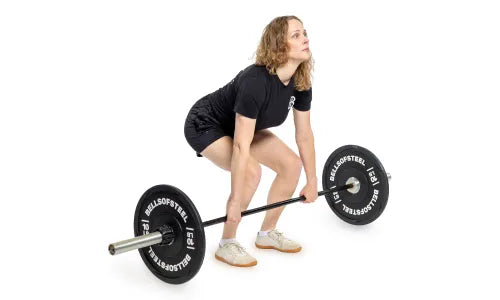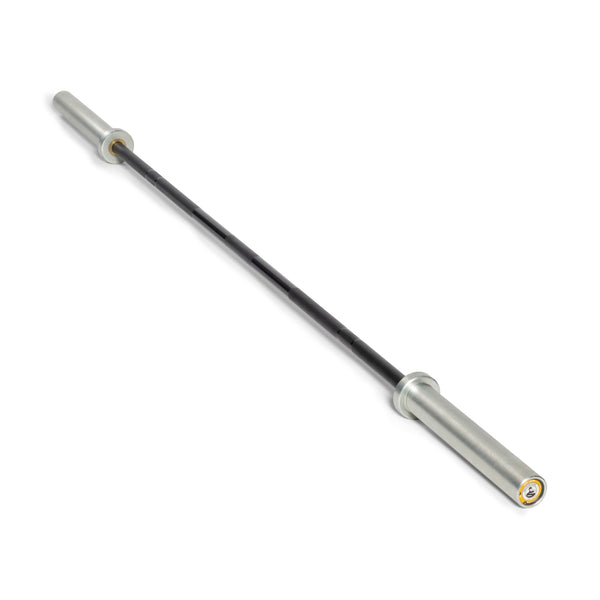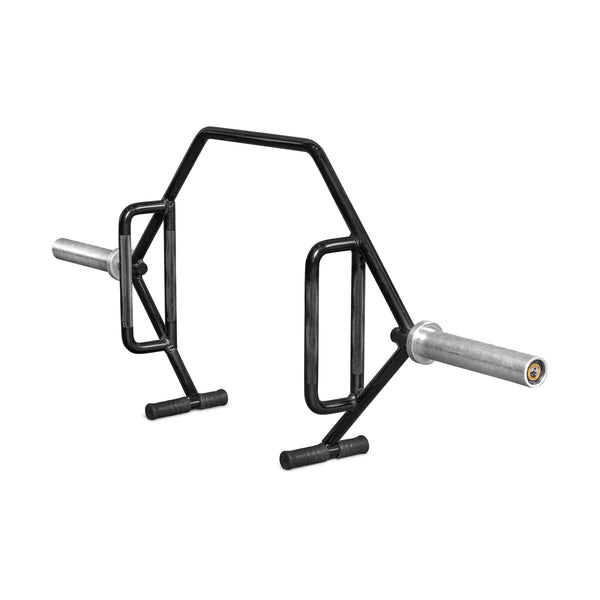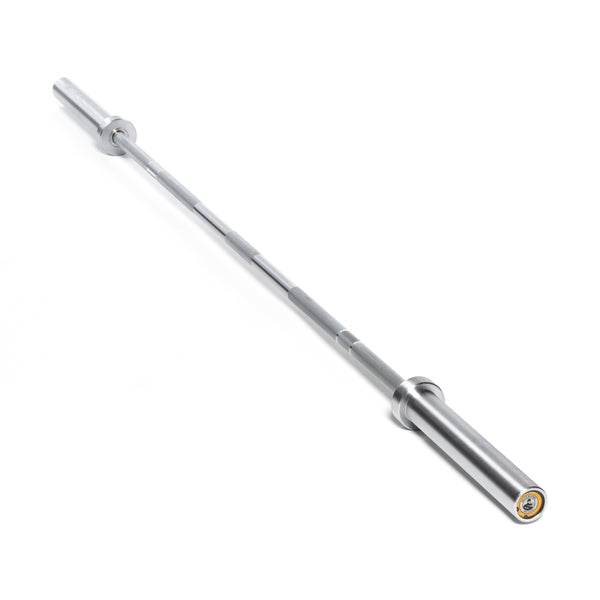If you’ve ever walked into a gym and felt slightly overwhelmed by the sheer number of barbells staring back at you, you're not alone.
The big question many women wonder: What size barbell should I be using? To be frank, whichever barbell feels comfortable in your hands. But let’s break it down further to clarify the differences, benefits, and important considerations.
What Is a Woman's Barbell?
A woman’s barbell, sometimes known as a women’s Olympic barbell, is designed specifically to accommodate a smaller frame while maintaining the performance you’d expect from any high-quality barbell. It’s not just a “pink and lighter” version of a barbell, either. Women’s barbells are built with different specs, most notably in weight, diameter, and length.
Sizing: How Do Women’s Barbells Differ?
Here’s a quick breakdown of the key differences between a standard (or what one might call “men’s”) barbell and a women’s barbell:
- Length: A women’s barbell is typically shorter, measuring about 6.5 feet (201 cm) compared to the standard men’s barbell, which is 7.2 feet (220 cm). Don’t worry, that extra few inches doesn’t affect how awesome your lifts are.
- Diameter: This is a biggie! The shaft of a women’s barbell has a smaller diameter—usually 25 mm versus the 28-29 mm on a men’s barbell. This thinner grip makes it more comfortable for people with smaller hands, offering better control and grip during those heavy lifts.
- Weight: The standard weight of a women’s barbell is 15 kg (about 33 lbs), whereas a men’s barbell is 20 kg (44 lbs). This weight difference helps ease lifters into progressively loading the bar while keeping form in check.
In essence, women’s barbells are built with smaller frames in mind.
Why Do Women’s Barbells Exist?
Women’s barbells weren’t designed to box anyone in—they’re meant to optimize the lifting experience for individuals with smaller hands and frames. The thinner grip and lighter starting weight allow for more comfortable and effective lifts without compromising on strength-building.
Still, it's essential to remember that these barbells aren’t an absolute requirement for women. You can grab any barbell that suits your needs and goals, whether that’s a women’s barbell, a standard men’s bar, or even a specialty bar like a trap bar. The point is to find what feels good for you—and helps you crush those personal records (PRs).
Benefits of Using a Women's Barbell
1. Better Grip for Smaller Hands
One of the biggest perks of using a women’s barbell is the more manageable diameter. If you’ve ever tried to deadlift or clean and felt like your fingers were barely holding on for dear life, this bar is your new best friend.
A thinner shaft allows you to get a more secure grip, especially when lifting heavy or doing high-rep sets.
2. Easier to Control
The slightly lighter weight and shorter length make women’s barbells easier to control, especially in Olympic lifts like snatches or cleans. This means you can focus on nailing your technique without wrestling a barbell that feels too bulky or heavy at the start.
3. Great for Progressions
If you’re a beginner, a women’s barbell offers a more manageable starting point for building up your strength and technique. The lighter starting weight allows you to work on your form without immediately throwing a massive amount of weight onto the bar. You can build confidence and strength as you progress.
Can Women Use Any Barbell?
Absolutely. Women can use any barbell that they’re comfortable with, including standard bars. In fact, many competitive female powerlifters and weightlifters will use a “men’s” bar in training since that’s often the standard bar used in competitions.
Many women prefer to switch back and forth between barbells. For instance, you may prefer the grip and lighter starting weight for something like strict overhead presses. Conversely, you might prefer that big bite of a powerlifting bar during deadlifts. It’s all preference.
Powerlifting and Weightlifting Federation Standards
If you’re planning on competing in powerlifting or weightlifting, it’s a good idea to familiarize yourself with the federation standards for the barbell sizes used in your sport.
For instance, in Olympic weightlifting competitions, women typically use a 15 kg barbell, while men use a 20 kg bar. Meanwhile, in powerlifting, both men and women often use the same barbell weight, depending on the lift and federation.
FAQs About Barbells for Women
Q: Can beginners use a “men’s” barbell?
A: Absolutely! If a 20 kg barbell feels good to you, go for it. There’s no hard-and-fast rule about which barbell beginners should use—just make sure you feel comfortable and can safely control the weight.
Q: Do I need a women’s barbell to start lifting?
A:Nope! You can use whichever barbell feels right for your goals and body. Women’s barbells are designed to make lifting more comfortable for those with smaller hands, but they aren’t the only option.
Q: What if I’m training for a competition?
A: If you’re gearing up for powerlifting or weightlifting competitions, be sure to check out the barbell standards of your federation. Knowing whether you’ll be using a women’s or men’s bar in competition can help you prepare during your training.
Conclusion: Find the Barbell That Fits Your Goals
At the end of the day, the best barbell for you is the one that feels good in your hands, aligns with your goals, and helps you lift safely and effectively.
Women’s barbells are fantastic for those who prefer a smaller grip and lighter starting weight, but you’re not limited to them. Whether you’re doing deadlifts with a standard barbell or perfecting your clean and jerk with a women’s bar, the most important thing is getting after it.
Key Takeaways:
- A women’s barbell typically weighs 15 kg, has a smaller 25 mm diameter, and is shorter in length.
- These barbells are great for those with smaller hands and make it easier to control the bar, especially in Olympic lifts.
- Women’s barbells are perfect for beginners looking to focus on form and technique without starting with too heavy a load.
- Women can use any barbell they feel comfortable with, including standard or “men’s” barbells.
- Competitive lifters should check their federation's barbell standards for training and competition.



